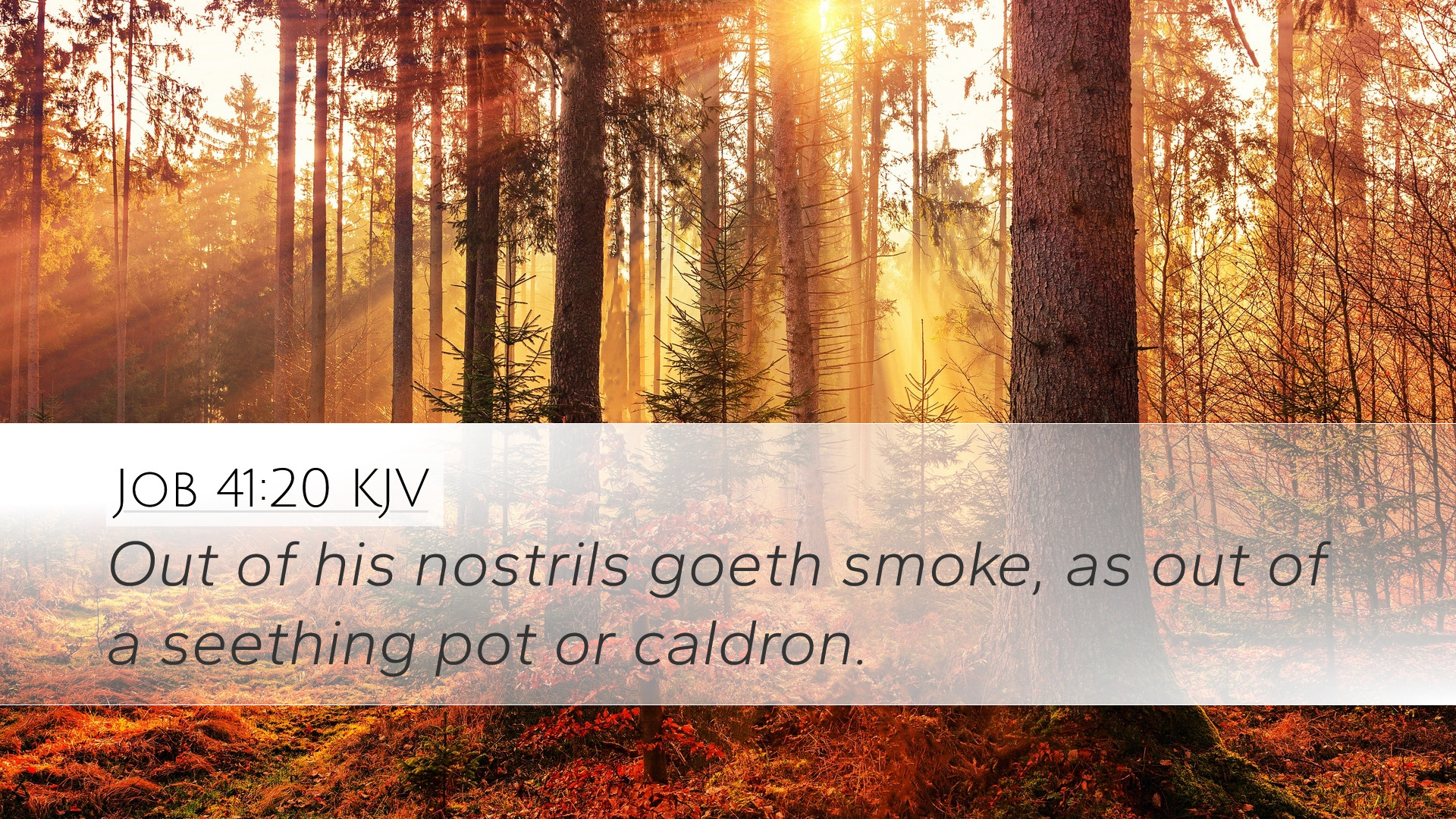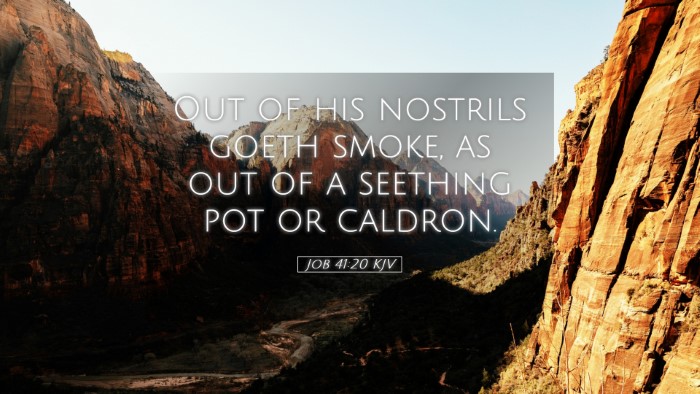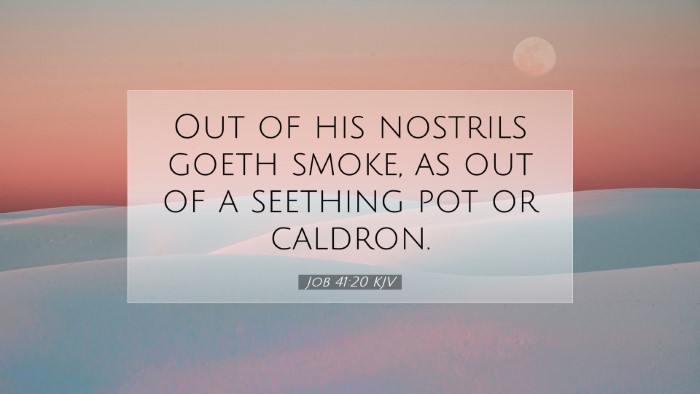Commentary on Job 41:20
Introduction
The book of Job wrestles with profound questions of suffering, divine justice, and the human condition. In the specific verse Job 41:20, God speaks about the fierce but magnificently created Leviathan, symbolizing chaos and the power of creation. This commentary synthesizes insights from public domain resources, including Matthew Henry, Albert Barnes, and Adam Clarke, to provide a comprehensive understanding of this powerful verse within its context.
Contextual Overview
Chapter 41 of Job continues the divine discourse where God challenges Job's limited understanding of creation and the divine order. The Leviathan, a creature of immense power, is emblematic of both God's sovereignty and the unfathomable mysteries of His creation. By presenting the Leviathan as part of His creation, God emphasizes not just His power over chaos but also His ability to manage what is beyond human comprehension.
Interpretation of Job 41:20
The verse reads: "Out of his nostrils goeth smoke, as out of a seething pot or caldron." This vivid imagery conveys several themes:
-
The Majesty of Creation:
Both Matthew Henry and Albert Barnes highlight that the description of the Leviathan illustrates God's omnipotence. The creature's ability to emit smoke emphasizes its fearsome nature and might, reminding the reader that creation, even in its wild fury, is under God's authority.
-
The Nature of Chaos:
Adam Clarke interprets the Leviathan as a representation of chaos and evil forces. The smoke emerging from it can symbolize confusion and disorder. This teaches that while chaos exists, it is still an element of God's creation and, thus, governed by His will.
-
The Potter and the Clay:
Matthew Henry draws a parallel between God as the sovereign creator and the created order that is both wondrous and terrible. The Leviathan's description serves to remind the faithful of the divine right over all creatures, something that Job needed to recognize in his suffering.
Theological Implications
This powerful imagery of smoke aligns with the theological themes of God's sovereignty over all creation. The implications for believers are profound and manifold:
-
Acknowledge God's Sovereignty:
Understanding that even the chaotic and destructive aspects of creation, like the Leviathan, are part of God's plan can provide comfort and perspective to those suffering. There is a divine purpose, even in suffering.
-
Respect for Creation:
The vivid description serves as a warning against underestimating the order and peace that God instills in creation. Believers are called to respect the forces they may not fully understand.
Practical Application for Life and Ministry
For pastors and theologians, Job 41:20 serves as a reminder to approach the complexities of life—both personal and congregational—with a sense of humility. Recognizing the limits of human understanding can lead to a more compassionate ministry and a deeper reliance on God.
-
Counseling Those in Despair:
When dealing with individuals in pain or turmoil, it is crucial to convey that their experiences, though chaotic, are not beyond God's reach or purpose. Just as the Leviathan is under God's control, so too is every life circumstance.
-
Encouraging Trust in God:
As ministry leaders, your role includes encouraging trust in God's providence. Job’s struggle invites believers to reflect on their trust in God amid life’s calamities, reminding them that He governs even the fiercest aspects of life.
Conclusion
In summary, Job 41:20 invites readers into a deeper understanding of God’s sovereign power over creation and the complex nature of suffering. Drawing on the insights of Matthew Henry, Albert Barnes, and Adam Clarke, believers can appreciate the theological richness of this verse. It inspires awe, encourages humility, and reassures us of God's ultimate authority over both creation and the chaos that sometimes permeates our lives. For pastors, students, and scholars alike, this passage is a reminder that when faced with the unimaginable, we are called to trust in the One who created and sustains all things, including the Leviathan.


